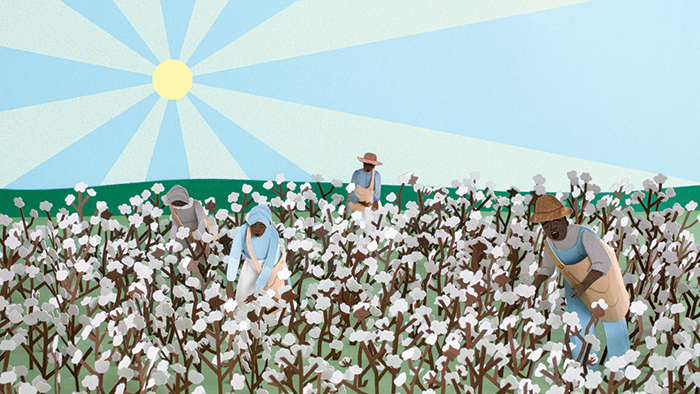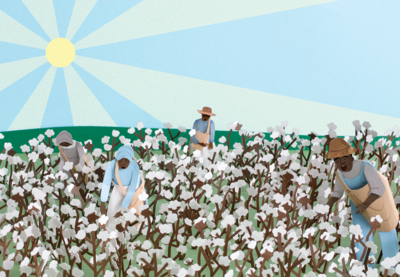Mary loved Sunday mornings. She waited all week for them to come. It was only her and Mama.
Mary didn’t know her father. He was sold to another plantation in the South not long after she was born. Mary was thankful Mama hadn’t been sold, too. Sunday mornings were special because enslaved people were given permission to sing, pray and worship in their own unique way.
Like many other enslaved people, Mary and Mama believed a better day would come. Mama had a great voice and loved to sing. She passed that gift to Mary. Mama led most of the songs during church; Mary always joined in.
They sang spirituals like “Ain’t Got Time to Die,” “Nobody Knows the Trouble I’ve Seen” and “Down by the Riverside.” These songs and music were part of their oral heritage brought by the first enslaved people during the Middle Passage from Africa to America. Traditional African rhythms and beats also helped enslaved people in the fields while they worked for hours and hours in the heat.
Singing Sunday songs of worship and praise was how enslaved people communicated with their creator. It lifted their spirits and allowed Mary and Mama to dream of a better day when they would be free.

Although American slavery lasted far too long and should have never existed at all, the spirituals Mary and Mama sang centuries ago are still sung in African American churches around the United States. Many forms of music created by African Americans are also used today to inspire people to fight against unfairness.
Like Mary and Mama praying and singing songs of Zion all those years ago, Negro spirituals still bring a sense of comfort to many African Americans. They serve as a reminder to never forget the past and always believe a better day will come.
This text is part of the Teaching Hard History Text Library.
Questions for Readers
Right There (In the Text)
Why were Sunday mornings special for Mary?
Think and Search (In the Text)
How did the Sunday songs encourage enslaved people like Mama and Mary?
Author and Me (In my Head)
Why did enslaved people draw on traditional storytelling, rhythms and beats for their music?
On my Own (In my Head)
What traditions have been passed down to me by my family or community?
Dorothy H. Price is the winner of the 2019 We Need Diverse Books Picture Book Contest. Two of her children's stories ("Songs of Zion" and "Nat Turner, Freedom Fighter") were published in the 2019 Teaching Hard History: American Slavery series. Dorothy is the author of Nana's Favorite Things, her first picture book, published in 2016 by Eifrig Publishing. She is a long-time member of the Society of Children's Book Writers and Illustrators.
